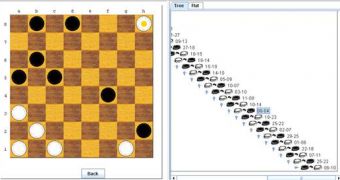The new computer is not exactly IBM's Deep Blue, the computer that defeated chess world champion Garry Kasparov in 1997, but it can definitely ridicule the best checkers players, because it is invincible at this game. The program is called Chinook and it was created in 1989.
Now, its developers at the University of Alberta, led by Jonathan Schaeffer, announced that the program has been improved to the point where it cannot lose a game. They said that "the newly crowned checkers king has solved the most challenging game yet cracked by a machine, even outdoing the chess-playing wizardry of IBM's Deep Blue," as MSNBC's Bryn Nelson reported in an article.
The program's invincibility comes from the fact that it can solve absolutely every possible move in a checkers game, around 500 billion billion, that is a 5 followed by twenty zeros. Not even another Chinook program can beat it, because if both applications play flawlessly, they will eventually reach a draw.
This new development was not so much compared to the (highly controversial) victory of Deep Blue over Garry Kasparov, but more to scaling Mount Everest, as it is a huge step towards artificial intelligence that could one day outperform the most brilliant human minds.
Schaeffer's program doesn't actually think all the possible strategies on its own, it just memorizes the outcome of every possible move, 39 trillion pieces of information needed to determine the consequences of each move when 10 or fewer checkers remain on the board.
"The whole strategy in solving a game is to shrink that middle part until it disappears, so your beginning game and your end game connect," said Michael Littman, a professor of computer science at Rutgers University in Piscataway, N.J., who has designed a computer program to complete crossword puzzles.

 14 DAY TRIAL //
14 DAY TRIAL //